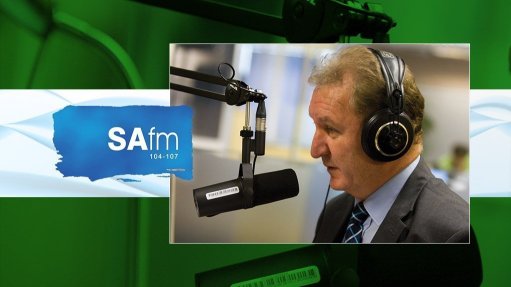Youth NEET dilemma exacerbated by failing CET colleges
This article has been supplied and will be available for a limited time only on this website.
It is a concern that community education and training (CET) colleges are still failing to attract learners. This while more than 3-million South Africans between the ages of 15 and 24 are not in employment, education or training (NEET) and about 4-million grownups are functionally illiterate.
These public-sector colleges continue to grapple with infrastructure problems, such as inadequate facilities that do not provide an environment that is conducive to learning. Add to these administrative issues with registration and certification which hinder enrolment and completion. This is compounded by budget constraints that impact the quality of education, training and infrastructure. And despite a disproportionate lecture to student ratio, there has been no commensurate improvement in student results. In fact, some gazetted CETs are staffed even though they do not have any students.
The latest available data from the Department of Higher Education and Training shows a notable decline in CET college enrolments from more than 130 000 in 2022 to 120 081 in 2023. This includes a marked decline in the number of individuals registering for Grade 12 examinations and adult education and training (AET).
“Nearly three in every five young jobseekers cannot find work,” Marco Maree, a Training & Development Expert of Triple E Training, says. “The only way that we will be able to solve this problem is to ensure that citizens who are NEET have access to proper skills development programmes. Certainly, business has an important role to play but we urgently need to address shortfalls in the public system to make a real impact.”
Triple E Training is a leading provider of adult literacy and numeracy training to industry. These are geared towards transferring foundational skills to unskilled and low-skilled employees and communities from where labour is sourced. Many of these community members are NEET. This is especially the case in the rural areas where poverty levels are higher and there are less opportunities for skills training and employment.
However, as Maree notes, private sector community adult literacy and numeracy programmes can only reach so many of these individuals. “Without a robust public AET programme, what happens to those individuals who cannot access our programmes?” he asks.
Maree points out that an estimated four in 10 learners who enrol in Grade 1 exit the school system before completing matric. 2024’s matric class throughput rate – which just measures progression from Grade 10 to 12 – was only 64.5% - “an alarming drop in 1,1 percentage points to 64,5% from the previous year.”
Of all the youth who are NEET, these individuals struggle the most as they are seldom able to secure basic entry-level jobs and decent training opportunities as industry increasingly relies on skilled employees. Many entry level jobs now require a matric.
While completing matric does not guarantee employment considering that 40% of youth NEET have attained a National Qualifications Framework (NQF) Level 4 qualification, it facilitates further learning. This increases chances of gaining employment, corroborated by the fact that young graduates only make up 7,5% of youth NEET. They are more than two-and-a-half times more likely to be employed than young non-graduates.
Therefore, supporting so-called “second chancers” in attaining a NQF 4 qualification will have an impact, he assets.
CET colleges are yet to play a meaningful role. Grade 12 enrolments at these facilities continue to decline with 9 404 fewer students in 2023 compared to 2022.
Even so, Grade 12 enrolments accounted for as much as 45,5% of learners attending CET colleges in 2023.
Maree says that more individuals are registering for adult matric via the Department of Basic Education’s (DBE) second-chance matric programme, which offers better support to these learners, as opposed to CET colleges.
More than 200 000 learners registered for the May/June 2024 examination and over 150 000 as part-time candidates for the October/November 2024 examination via this programme. Yet only 85 303 learners achieved subject passes, revealing a further fault line in the public education system.
Meanwhile, 42,6% of learners attending CET colleges were completing General Education and Training Certificate in Adult Education and Training Level 4 in 2023.
“We also offer this training as a learnership, which has been very effective especially in terms of preparing employees for further learning. This is considering its focus on teaching fundamental, in addition to core and strategically selected elective subjects. However, the completion rate of this course at CET colleges remains extremely low,” Maree remarks.
This has been a continuing trend since 2013, except for a minor improvement in learner performance in 2018 and a peak of 77,2% in 2019. In 2023, only 39,2% of learners passed compared to 41% in 2022.
Meanwhile, enrolments in adult education and training (AET) Levels 1 to 3 and occupational qualifications made up only 7% of overall student intake at CET colleges in 2023.
“The focus must be on providing youth NEET with the skills that make young people more eligible for actual employment opportunities. This can only be done if we have a robust public training system that supports private sector driven programmes, which have a very limited reach – especially during tough economic conditions,” Maree concludes.
Comments
Announcements
What's On
Subscribe to improve your user experience...
Option 1 (equivalent of R125 a month):
Receive a weekly copy of Creamer Media's Engineering News & Mining Weekly magazine
(print copy for those in South Africa and e-magazine for those outside of South Africa)
Receive daily email newsletters
Access to full search results
Access archive of magazine back copies
Access to Projects in Progress
Access to ONE Research Report of your choice in PDF format
Option 2 (equivalent of R375 a month):
All benefits from Option 1
PLUS
Access to Creamer Media's Research Channel Africa for ALL Research Reports, in PDF format, on various industrial and mining sectors
including Electricity; Water; Energy Transition; Hydrogen; Roads, Rail and Ports; Coal; Gold; Platinum; Battery Metals; etc.
Already a subscriber?
Forgotten your password?
Receive weekly copy of Creamer Media's Engineering News & Mining Weekly magazine (print copy for those in South Africa and e-magazine for those outside of South Africa)
➕
Recieve daily email newsletters
➕
Access to full search results
➕
Access archive of magazine back copies
➕
Access to Projects in Progress
➕
Access to ONE Research Report of your choice in PDF format
RESEARCH CHANNEL AFRICA
R4500 (equivalent of R375 a month)
SUBSCRIBEAll benefits from Option 1
➕
Access to Creamer Media's Research Channel Africa for ALL Research Reports on various industrial and mining sectors, in PDF format, including on:
Electricity
➕
Water
➕
Energy Transition
➕
Hydrogen
➕
Roads, Rail and Ports
➕
Coal
➕
Gold
➕
Platinum
➕
Battery Metals
➕
etc.
Receive all benefits from Option 1 or Option 2 delivered to numerous people at your company
➕
Multiple User names and Passwords for simultaneous log-ins
➕
Intranet integration access to all in your organisation





















